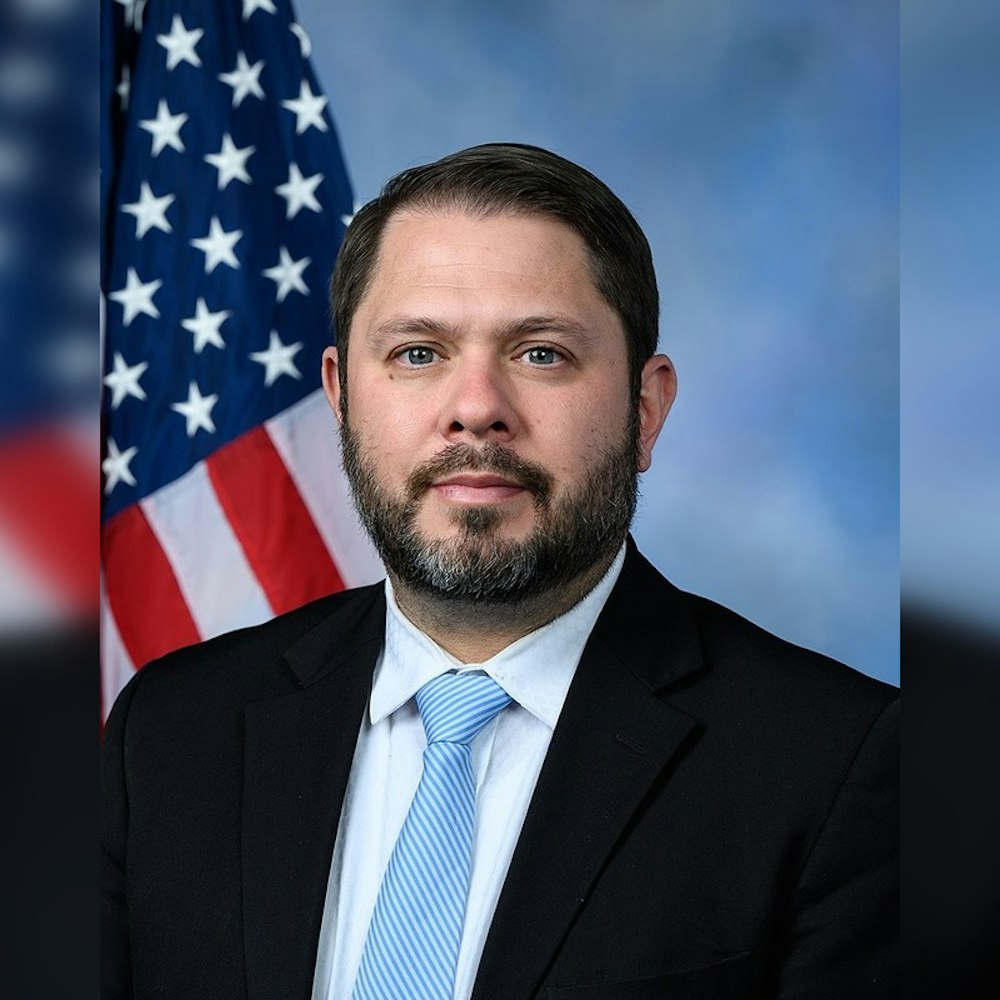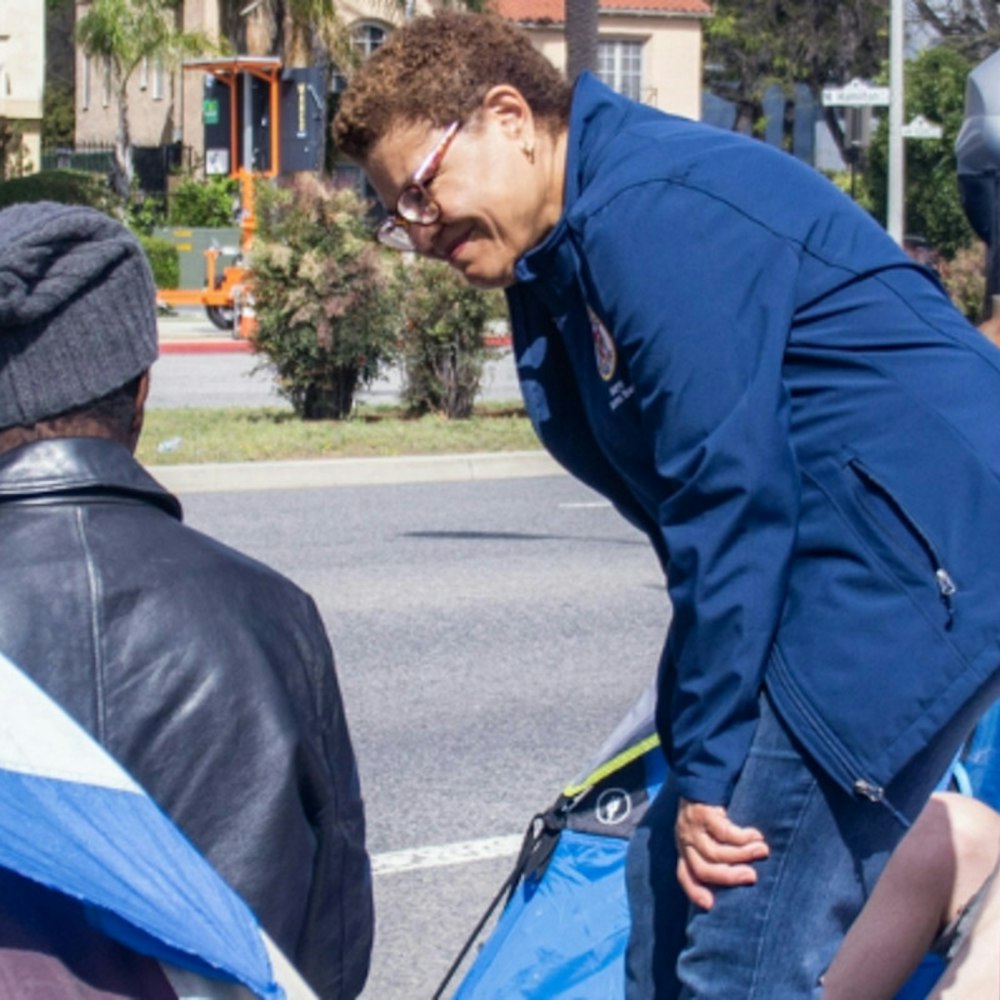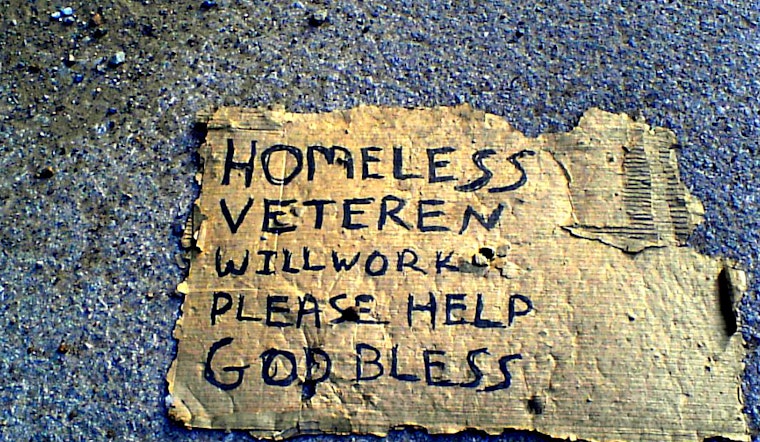
[Editor's Note: Hoodline is participating in today's SF Homeless Project, in which more than 70 area publications are each covering homelessness issues in their own ways.
While we already write about these issues often, we hope that our stories today will add more neighborhood context to this very complicated topic, and to the great work being published elsewhere. You can read more about the project here.]
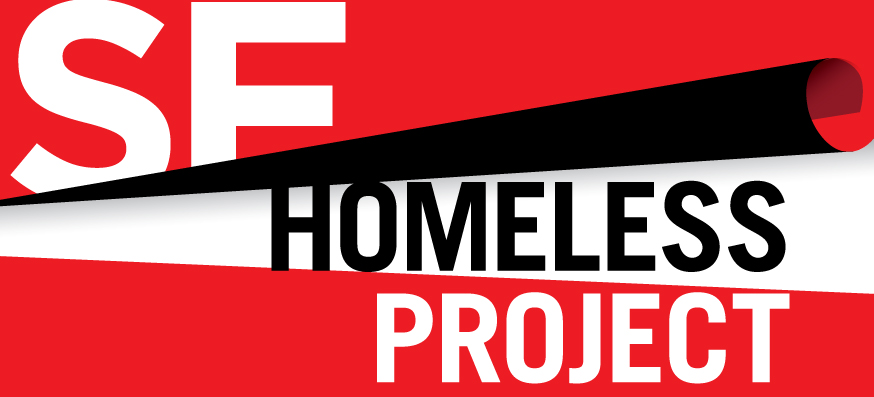
Robin Bradford first learned about homeless women veterans in 2012 when she stumbled across a Huffington Post article. According to the article, the number of homeless women veterans had more than doubled between 2006 and 2010, rising from 1,380 to 3,328 individuals. Bradford was “disgusted,” learning that the increase in the number of women veterans experiencing homelessness was nearly 100 percent higher than the increase seen in their male peers. “I just found that very shameful,” said Bradford.
In 2013, driven by her new-found awareness on this alarming trend, and her subsequent research, Bradford, an award-winning writer, director, and producer, wrote the play Low Hanging Fruit. The performance — directed by Louis Parnell and presented by 3Girls Theatre Company — portrays the lives of four homeless women veterans struggling to survive on Los Angeles’ Skid Row.
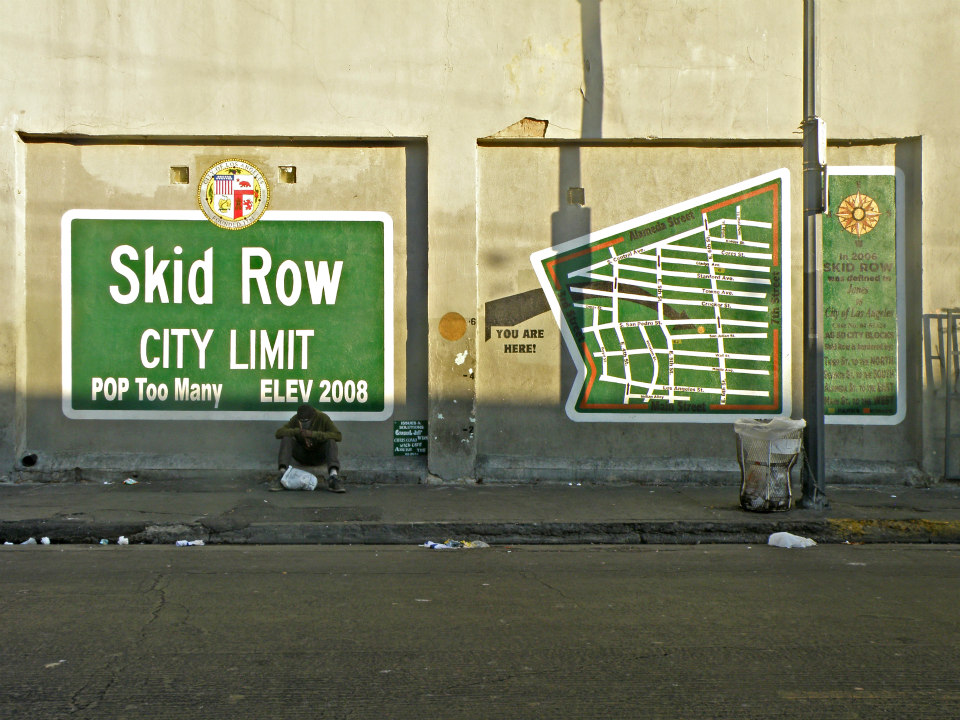
Two years since premiering the play in Los Angeles, Bradford’s Low Hanging Fruit will come to San Francisco in July. Even though the script isn’t new, the relevancy of the play’s focus remains pertinent. In a Department of Housing and Urban Development report, the number of homeless women veterans in 2015 was 4,338, higher than the number that prompted Bradford to take on this project in 2013. “I was really anxious to get it on stage because it was such a timely issue two years ago,” said Bradford. “Sadly, it’s still just as timely.”
“The play doesn’t try to explain why these veterans are homeless: it’s simply a fact given our society's acceptance of homelessness in America,” said Bradford, who has spent most of her life in San Francisco. “There isn’t outrage, no character rallies against the poor treatment of the returning women soldiers; but rather, they accept it.”
Women comprise ten percent of our nation’s veterans and according to Swords for Plowshares — a San Francisco-based nonprofit that provides case management, employment, training, housing, and legal assistance to roughly 3,000 Bay Area veterans each year. That number is expected to double over the next 20 years. Not only are female veterans the fastest growing cohort of the veteran population, the demographic is also the fastest growing cohort of the homeless population.
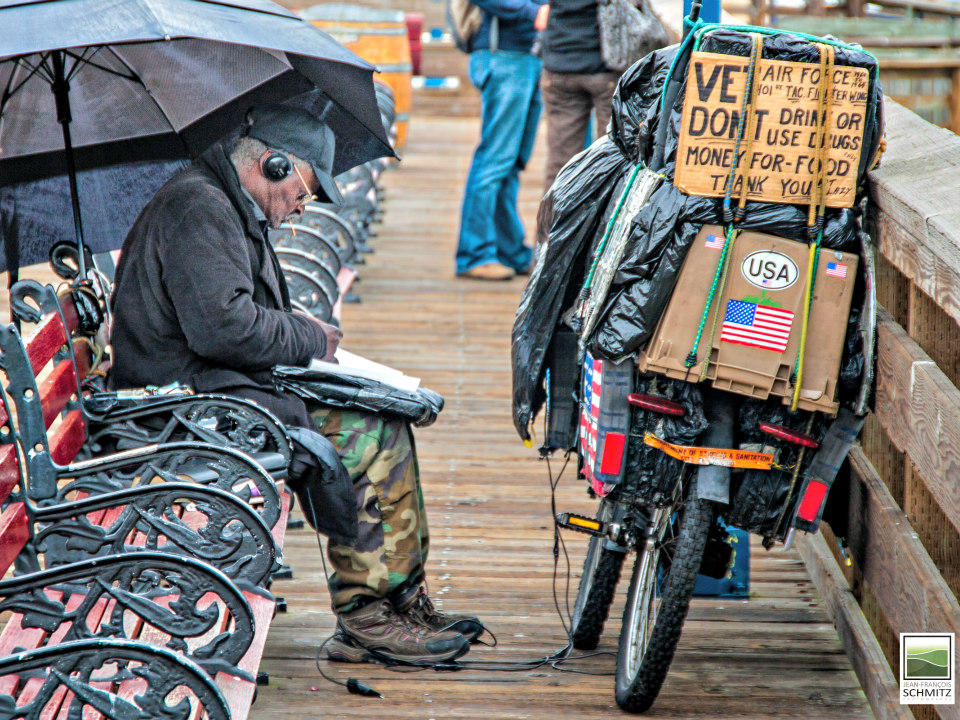
“Watching these women struggle, fight, and cling to some kind of hope for themselves,” said Bradford, of her play’s characters, “we are watching the reality that perhaps no one cares, or cares enough. In the absence of societal action, these women draw strength, love, and empathy from each other.” Each of the playwright's characters, clustered together in a small tent encampment nicknamed 'The Taj Mahal,' is a military veteran struggling with nightmares brought about by their combat experiences abroad.
A disproportionately high number of homeless women veterans have a history of Military Sexual Trauma (MST) and are nine times more at risk for Post Traumatic Stress Disorder (PTSD). Although women service members account for approximately 15% of the military, over 95% have reported sex crimes. This often leads to difficulties maintaining productive employment and family relationships, greatly increasing the odds of a female veteran becoming homeless. Nearly 80 percent of homeless veterans suffer from mental health challenges and/or substance abuse.

According to Bradford, “the play draws our attention to the shameful treatment of our returning women vets. After serving in combat,” she said, “too many of our veterans return home with varying degrees of trauma and literally fall through society’s cracks. This play seeks to open up conversations about what happens after we say ‘thank you for your service.’”
In researching her play, Bradford spoke to many people, including active and retired military personnel, government employees, volunteers in the private sector, and homeless people living on the streets.
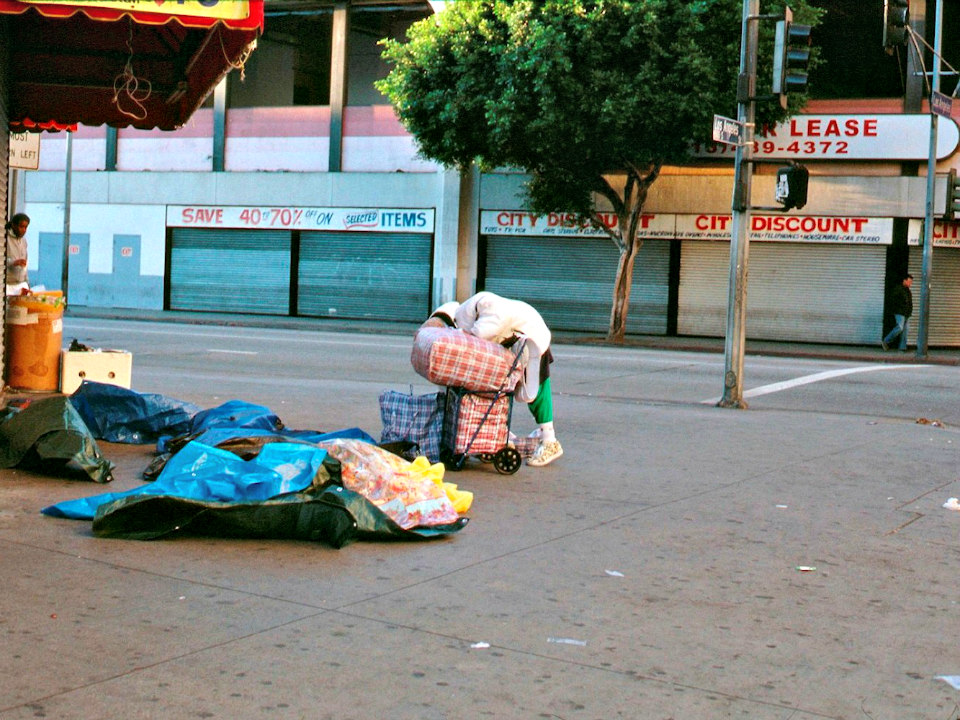
Women who suffer personal violence in the military, including rape, are 6.5 times more likely to experience homelessness. Trend data shows that reports of military sexual assault are on the rise, and the estimated gap between reporting and prevalence among service members is at its narrowest since they began tracking sexual assaults in the military. Violent sex crimes in the military have increased by 64% since 2006.
Whereas Bradford describes Low Hanging Fruit as “a very visceral and eye-opening experience,” interspersed with traditional dialogue, slam poetry, and music, the central message is a powerful one: “there is always hope, even when it seems the world doesn’t care,” said Bradford.

“What I’d like [the audience] to walk away with,” said Bradford, “is to realize there’s no one size fits all in terms of homeless people. There’s an easy category: homeless. But you can’t really put them all into one batch.” The playwright hopes that people who watch her play not only leave more aware of female veteran homelessness, but also more empathetic to individuals living on the street.
“The pervasive growth of homelessness among women veterans, reflects the lack of awareness and education about this issue in our communities,” said Amy Fairweather, policy director at Swords to Plowshares. “Efforts like Low Hanging Fruit are necessary to not only inform the public, but to make a statement to our women veterans that they are not forgotten. I was excited to hear about [the play] because it increases understanding about homeless women veterans."
Bradford sees art, in this case, live theater, as a means to initiate larger conversations about pressing social issues. “I think the beauty of art is it allows us to get a glimpse or a deep look at unknown worlds that we might not otherwise be exposed to either through not being interested in it or being afraid to investigate it,” Bradford said. “It can be an introduction to issues that are important but get swept aside. You can see stories on TV or on the movie screen that are compelling, but something about live theater just hits at home.”

Describing Low Hanging Fruit as “a step away from the statistics,” Bradford hopes that people will come out to experience the power of storytelling. “The message is important,” she said. “We can support change in terms of how we’re gonna help the less fortunate, because they’re incapable of doing it themselves."
“There’s a ripple effect when you’re a human being and you do something good,” Bradford said. “It might not make the difference between what’s happening on a national level, but it has a ripple effect on your own community and people that you come in contact with.”
"People cannot will themselves into health or mental health," she said. "They can’t magically pull themselves up by the bootstraps. We have to be there for them, or they don’t have a chance.”
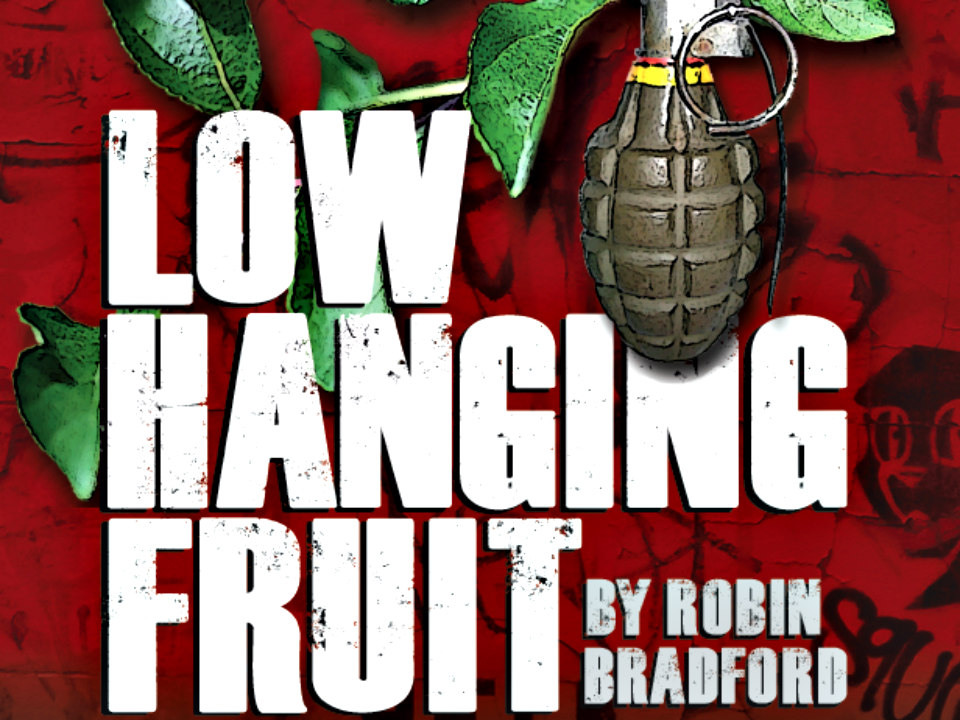
Tickets for 'Low Hanging Fruit' are available online. The play will be hosted at Z Below throughout July. Every Thursday, 3Girls Theatre Company will be partnering with local nonprofits -- including North Beach Citizens, Compass Family Services, San Francisco Suicide Prevention, and SF Coalition on Homelessness -- to raise awareness. During these community nights, in-kind donations will be collected on behalf of the guest organization.



